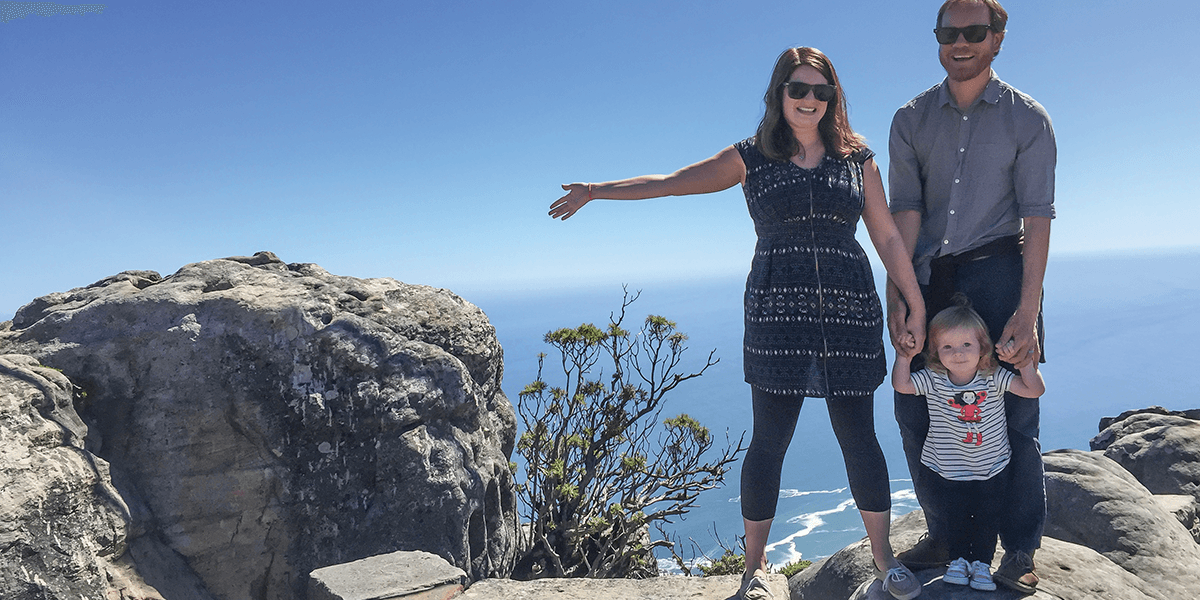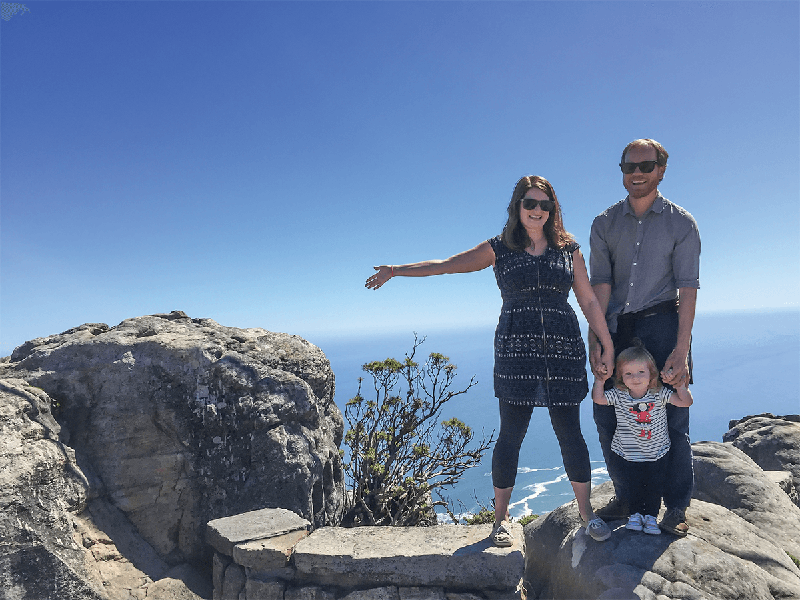

ORIGINALLY POSTED 02/16/2017 |
FROM THE Spring 2017 ISSUE
Nick and Amanda Ellwanger are a husband-and-wife team of UTSA anthropology Ph.D. candidates doing research in South Africa while raising a daughter. In an email exchange, the couple discussed the field of ethnoprimatology and what it’s like researching with a partner.
Where are you and what are some of the other places you’ve conducted research?
Amanda: We are in Hermanus, South Africa, and conduct research in the Hemel-en-Aarde Valley. I did an undergraduate honors thesis on mantled howling monkeys on Ometepe Island in Nicaragua and M.A. research in Fanjingshan National Nature Reserve in China.
Nick: I have studied baboons on the Cape Peninsula of South Africa and ring-tailed lemurs in Berenty Reserve in Madagascar.
What is ethnoprimatology?
Amanda: It’s an approach to examining the ecological, biological, and cultural interconnections between people and nonhuman primates. This can include ecological and spatial overlap, bidirectional pathogen exchange, and nonhuman primates in people’s worldview, myth, religion, and economic systems. Often these areas of study are linked. My particular research examines how people’s attitudes and behaviors may influence chacma baboon foraging and social relationships.
Nick: And my research examines baboon diet and nutrition across time and space. I’m interested in how baboons utilize human-modified habitats and nonnative food sources that are introduced, like agricultural products and invasive species.
What does that mean in a broader sense?
Amanda: Baboons are deeply embedded into South African culture—from centuries of ecological overlap and conflict between people and the monkeys to people’s recognition that baboons are special among animals because they are so much like humans. I hope my research will help people understand how they are tied to baboons, ecologically and culturally.
Nick: In my work, because baboons use human landscapes so often in South Africa, it is important to understand what nutritional benefits baboons derive from human and natural landscapes. I hope that this research aids land management in respect to baboon conservation.
And finally, what’s it like doing this research with your partner?
Amanda: We spend almost every day, all day long with each other—both in and out of the field—so luckily we work together really well. And we don’t get sick of each other. It can be really challenging, since we have to balance our individual research needs and schedules with our family needs. Our 2-year-old daughter is here with us, and she attends preschool during the week. And she’s learning Afrikaans!
Nick: But we also have endless support and complete understanding from each other. We are both involved in research, so we share an understanding of the sacrifice and commitment involved. Plus, we get to talk about monkeys and anthropology all day.

